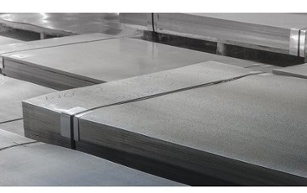Nickel is one of the most versatile elements used in industry. While nickel has been used in its pure form since ancient times, today it is most commonly employed in alloys.
Nickel’s slow oxidation rate makes it highly resistant to corrosion, and it provides excellent heat resistance as well. It has a wide solubility range with many different alloy materials, including titanium, aluminum, and iron, among others.
 The corrosion resistance and high temperature strength of nickel alloys make them extensively used in the most challenging environments. They are best known for their use in chemical and aerospace applications.
The corrosion resistance and high temperature strength of nickel alloys make them extensively used in the most challenging environments. They are best known for their use in chemical and aerospace applications.
Nickel alloys are heavily used for containers, pipes, and equipment associated with chemical processing, as well as a wide breadth of aerospace engineering applications. However, these alloys go far beyond just these two areas.
They are also instrumental in a number of lesser-known applications, including restaurant cooking appliances, pollution control equipment, and waste incinerators.
1. Professional Cookware
The properties that make nickel alloys the premium choice for harsh environments also make them instrumental in commercial food equipment.
These alloys help manufacturers of cooking supplies meet ANSI/NSF international standards for food equipment. Their corrosion-resistant properties allow cookware to maintain its original surface characteristics in all cooking environments, as well as after exposure to different cleaning and sanitizing compounds.
Nickel alloys also help professional cookware remain smooth and easily cleanable, ensuring that all food and soiling material can be removed with manual cleaning methods.
Nickel alloys typically used in professional cookware include nickel-copper alloy 400 (UNS N04400), alloy 825 (UNS N08825), and alloy 20 (UNS N08020).
2. Emission Control
Nickel alloys are also heavily used in equipment that helps control emissions. Coal fired power plants play an important part in generating electric power in the USA, but the combustion of coal generates a number of pollutants that must be accounted for.
Nickel alloys are used in many capacities to help with pollution control, including the construction of absorber towers. These alloys are used to help absorb hot and concentrated amounts of sulfuric acid, among other uses. The employment of nickel alloys helps companies meet the strictest air control laws, as well as all applicable rules of the EPA.
Typical alloys for these applications include Inconel alloy 625 and 622, alloy 825 (UNS N08825), and C276 nickel alloy plate. It offers reliable performance and lowers maintenance costs for corrosive-resistant pollution control components.
3. Waste Treatment
The toughness and resilience of nickel alloys also make them widely used for waste treatment, specifically incineration.
Nickel alloys can work in the most difficult conditions. Incineration oxidizes materials such as fluorocarbons, sulfur, chlorinated organics, and brominated compounds. Corrosive chemicals and gasses are produced as the result of this process, including nitrogen oxides, hydrogen halides, and acidic gasses.
Alloys such as C276 can withstand these harsh conditions, allowing incineration to occur while protecting equipment against serious corrosion, oxidation, acidic condensate, and cycling temperatures.
Nickel alloys play a vital role in applications that need to work reliably under the most stressful conditions. They help keep food safe, promote environmental sustainability, and treat dangerous waste, performing in areas far beyond chemical and aerospace. When customers require versatile protection against extreme elements, nickel alloys can fulfill the role no matter how difficult or challenging the conditions.
For more information about nickel alloys, download our composition chart that breaks down alloys by their chemical compounds — helping you choose the proper material for your next project.

